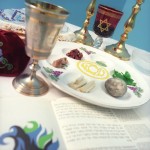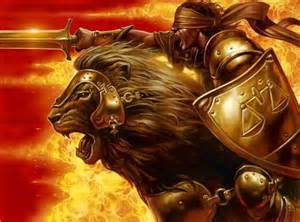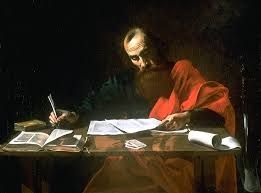The Feasts of Passover & Unleavened Bread
IT’S WORTH CONSIDERING
Passover
 Passover celebrates the miraculous deliverance of the Israelites from Egypt (Exodus 12) and was the occasion for Jesus’ last supper with his disciples when he inaugurated the New Covenant (Matthew 26:17-19, 26-29). In order to be delivered from physical death and further bondage, the Israelites had to place the blood of a spotless (pure) lamb on the doorposts of their homes (Ex. 12: 5-13). Today, we must apply the blood of Jesus, who was likewise spotless (sinless) and whom John the Baptist called the Lamb of God (John 1:29, 36). In our case, we apply his blood to our hearts through faith in him in order to be delivered from spiritual death and bondage to sin. It was no coincidence that Jesus died on the same day the Passover lambs were being slaughtered in order to die in our place. He fulfilled the Feast of Passover in a complete and eternal way. In 1 Corinthians 5:7b the Apostle Paul clearly connects what Jesus did on the cross to the Passover feast, calling Christ “our Passover.”
Passover celebrates the miraculous deliverance of the Israelites from Egypt (Exodus 12) and was the occasion for Jesus’ last supper with his disciples when he inaugurated the New Covenant (Matthew 26:17-19, 26-29). In order to be delivered from physical death and further bondage, the Israelites had to place the blood of a spotless (pure) lamb on the doorposts of their homes (Ex. 12: 5-13). Today, we must apply the blood of Jesus, who was likewise spotless (sinless) and whom John the Baptist called the Lamb of God (John 1:29, 36). In our case, we apply his blood to our hearts through faith in him in order to be delivered from spiritual death and bondage to sin. It was no coincidence that Jesus died on the same day the Passover lambs were being slaughtered in order to die in our place. He fulfilled the Feast of Passover in a complete and eternal way. In 1 Corinthians 5:7b the Apostle Paul clearly connects what Jesus did on the cross to the Passover feast, calling Christ “our Passover.”
Unleavened Bread
As the Israelites prepared to flee the bondage of Egypt, they took unleavened bread with them since their haste left them no time for bread to rise (Ex. 12:39). In the Bible, leaven symbolizes sin. Taking unleavened bread spiritually symbolized that they were leaving the sins of Egypt behind and making a new start in the desert. In Matthew 16:6 and elsewhere, Jesus compares the hypocrisy and sin of the Pharisees and Sadducees to leaven.
In order to be the perfect Lamb of God, Christ, our Passover, had to be without sin just as the bread was without leaven. For we do not have a high priest who cannot sympathize with our weakness, but one who has been tempted in all things as we are, yet without sin (Hebrews 4:16). The true significance is seen in 1 Corinthians 5:7-8:
Clean out the old leaven, that you may be a new lump, just as you are in fact, unleavened. For Christ our Passover also has been sacrificed. Let us, therefore, celebrate the feast, not with old leaven, nor with the leaven of malice and wickedness, but with the unleavened bread of sincerity and truth.
AS I SEE IT
Passover occurs on the 14th of the Hebrew month Nisan. Unleavened Bread begins on the next day and lasts for seven days. The two have become so intertwined that they have come to be observed as one holiday. It’s a shame that this connection has been lost on many believers today. Positionally (as God sees us), believers are unleavened. Because Christ removed our sin, God sees us as holy and righteous. Unfortunately the way we live our lives doesn’t always match our position.
Here’s the point. Just as Passover was immediately followed by Unleavened Bread, believers who have been cleansed (by Christ’s blood) should respond by walking in holiness. This is the point Paul was making to the church in Corinth. If their salvation was real, their new lives in Christ would be characterized by holy living. This Saturday, April 7, let’s take some time to reflect on whether the message of Passover/Unleavened Bread is being reflected in our lives.
I provide a more detailed description of all the Feasts of the Lord in my book The Israeli Connection, available in paperback at my website and as an e-book at most e-bookstores.
ON THE LIGHTER SIDE
Sadly, due to the recession, my brother’s origami business has folded.





Leave A Comment